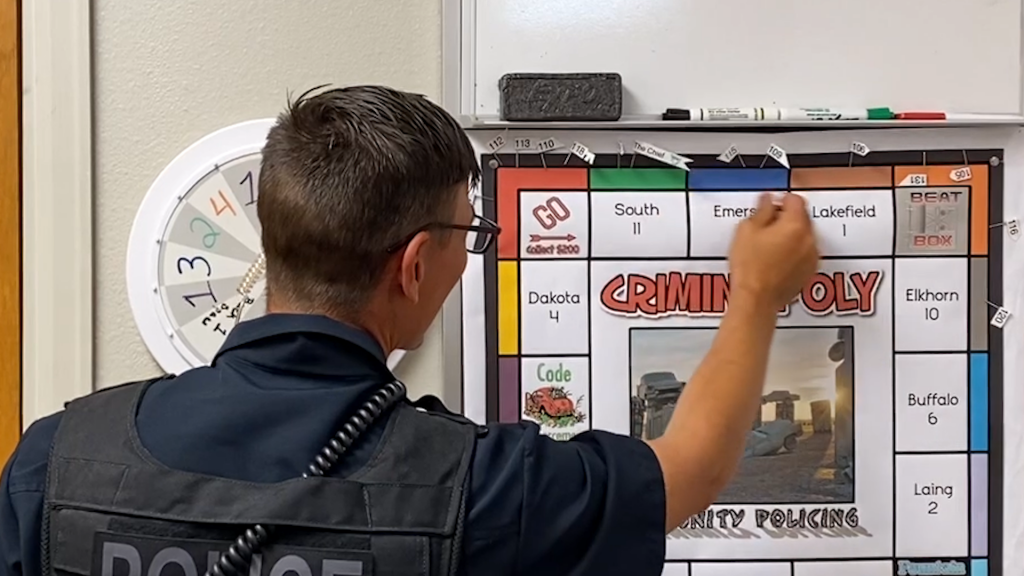There’s a new game in Alliance, one meant to enhance job performance and satisfaction among police while increasing community engagement and boosting crime prevention.
Chief Phil Lukens has started Criminopoly, in which officers make a daily spin to move their piece on a game board, giving them perhaps a task or a beat which is not their own area, in which they can get ‘department bucks’, sometimes from the Chief, other times from the officer who patrols the beat they’ve checked.

Lukens says what the game does is build camaraderie, and at the same time gets additional eyes to look for circumstances that could lead to criminal activity. “If somebody’s car is unlocked, you can see the lock sticking up on the car as you drive down the street, make a note of it. Or, if somebody’s garage door is open in the middle of the night, people want to know about that, sometimes they forget or accidentally hit the button, and we help prevent that,” says Lukens. “So the officer goes to that location, because they drew that location. They find work to do, they leave a notice, no big deal, and people are happy they get the notice.”

Officers can use the play money “department dollars’ to get items such as special flashlights, backpacks and other items that may not be a standard part of their equipment. Lukens says in the short time it’s been in use, Criminopoly has been a boost to morale, adding a fun way for officers to interact with each other and the public. In addition to the notices about potential problems and talking with community members for feedback, officers are also distributing “Caught Doing Good” cards, which provide the recipient with a free Blizzard from the local Dairy Queen.

Lukens was asked if the game was perhaps a modified take on the ‘broken windows’ methodology of crime prevention, in which the fight against more serious crimes actually begins by addressing the smaller things. “The fact of the matter is, the more we pay attention to the little things, the less they develop into big things,” said Lukens. “You know, a flood doesn’t start with a whole bunch of water. A flood starts with one drop, one raindrop; and then it adds, and it adds, and all of that compilation is what ends up resulting in a flood.”


